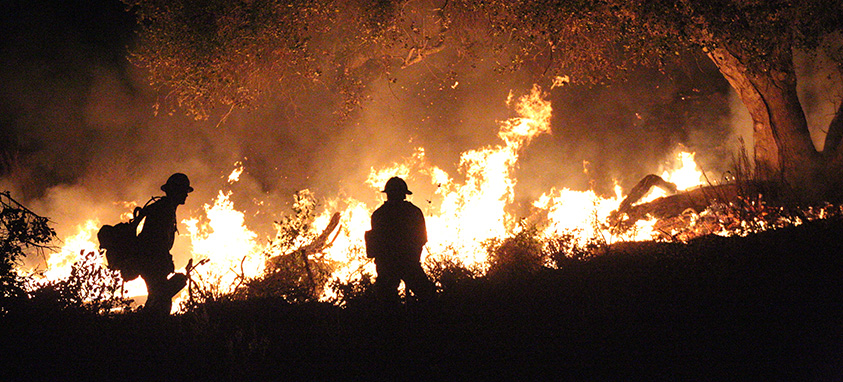 Lawyer Says Detailed, Advance Collaboration with Venue Partners Is Essential
Lawyer Says Detailed, Advance Collaboration with Venue Partners Is Essential
Meeting planners face an ever-increasing number of liability issues due to disasters, such as fires, floods, hurricanes and even acts of terrorism, and need to effectively manage them by establishing solid relationships with venue partners, local officials and attendees.
This was a key message from Lisa Sommer Devlin, a lawyer with 25 years of experience in hotel and group contracts, during a recent Smart Meetings webinar, “Risk Management 101”.
“A strong relationship with your partner helps,” she said. “Working together minimizes disputes.”
Dealing with Disasters
 Devlin emphasized the importance of regular communications with partners, including discussions about the “go/no go” date and related circumstances for a meeting or an event. She also pointed out the need to discuss disaster scenarios with government officials and inform attendees about what is transpiring.
Devlin emphasized the importance of regular communications with partners, including discussions about the “go/no go” date and related circumstances for a meeting or an event. She also pointed out the need to discuss disaster scenarios with government officials and inform attendees about what is transpiring.
She encouraged planners to talk with their insurance companies about how to deal with common emergencies, to consider obtaining event-cancellation insurance and to use apps to communicate with attendees.
During an emergency, it’s important to be clear on what to do and not to do, Devlin said. This includes designating people to respond, and to document what happened. She advised that to avoid liability, it’s best to call 911 or security to assist an injured person rather than make recommendations and offer personal assistance on the spot.
This “no recommendation” advice applies to nonemergency situations, as well. “If you take on a responsibility, you can be liable if you do it wrong or carelessly,” she said. Common situations include recommending a “safe route” for an attendee to take when walking back from an event and promising attendees that you will communicate their specific dietary restrictions to the culinary staff.

5 Guidelines for Managing Liability
Here are Lisa Sommer Devlin’s five suggestions for managing liability risks.
- Make sure you understand potential liability.
- Negotiate lower premiums; rather than including a clause that says you won’t owe anything if you don’t fully perform, try to negotiate a lower minimum.
- Build in the opportunity of reviews and adjustments.
- Determine if there are any specific risks, such as strikes for a union-sensitive group, that could be addressed separately.
- When the unexpected happens, the sooner you act, the more opportunity there is for creative solutions.
Creating Clear Contracts

Devlin’s webinar covered several other aspects of risk management, which she defined as “the process of identifying, assessing and controlling threats to an organization’s capital and earnings.”
“These threats, or risks, could stem from a wide variety of sources, including financial uncertainty, legal liabilities, strategic management errors, accidents and natural disasters,” she said.
Her overriding message is that meeting professionals need to be proactive in dealing with risk-management issues and pay very close attention to details to avoid potentially devastating liability cases and other financial problems.
She emphasized the importance of establishing clearly stated contractual obligations.
“A standard liquidation clause that has dates and dollar amounts already stated in the contract is the best way to know what your responsibility is going to be,” she said.
Devlin said that cancellation is a key issue in an event contract, and that a standard liquidated damage provision is the best way to be aware of, and manage, a group’s risk. “You don’t need to worry about having a ‘cancellation by hotel’ clause in the contract because regardless of whether or not there is a clause related to the hotel canceling, it will have to pay you,” she said.
Another significant contract issue is attrition, which is caused by several factors, including people not liking the venue, speakers or topics, as well as unanticipated economic hardships. Devlin emphasized that it’s important to understand that only minimum commitments are needed in a contract because hotels offer rates, space and concessions based on the value of the commitment, and hotel managers are accountable to their property’s owners for future business.
Careful Planning

Thorough planning can help to minimize the risks at an event. Devlin recommended that the planner and venue representative do a walk-through together in areas to be used—to identify possible security issues. She also stressed the importance of predetermining responses to questions that could arise, such as “At what point would a party need to be shut down due to overcrowding?” and “What happens if an outdoor reception becomes too windy?” It’s important for the person who makes “the call” in these situations to be identified in advance.
Devlin also advised planners to be sure that the venue is safe—including having a hand rail on the stairs to the stage and having clearly marked, unimpeded exits. Security firms can provide excellent help, but should be used with discretion, she said.
“There are a lot of so-called security experts out there,” Devlin said. “Don’t just hire whoever somebody tells you about. Be sure that the person has the experience needed for your type of event.”




